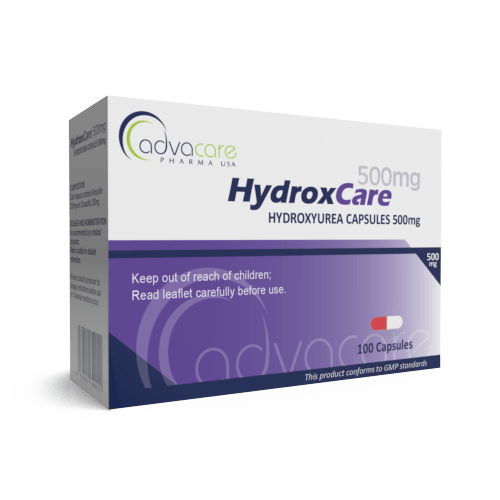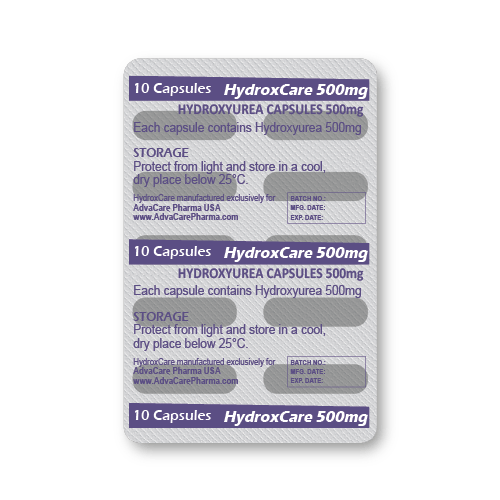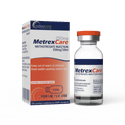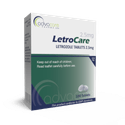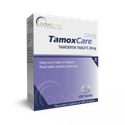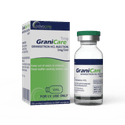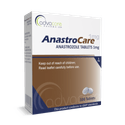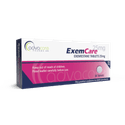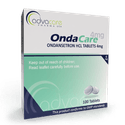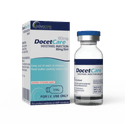- Home›
- Pharmaceuticals›
- Oncology Products›
- Oncology Capsules›
- Hydroxyurea Capsules
Hydroxyurea Capsules
Dosage
Packaging
What is Hydroxyurea?
Active Ingredients: Hydroxyurea
Hydroxyurea Capsules are an antineoplastic drug used for several types of cancer. It is primarily used to treat myeloproliferative disorders, specifically polycythemia vera and essential thrombocythemia. This medicine is used to reduce pain episodes and the need for blood transfusions in people with sickle cell anemia.
This medication may be prescribed for those with chronic myelocytic leukemia, ovarian cancer, and certain types of skin cancer, including melanoma and primary squamous cell cancer of the head and neck.
Hydroxyurea is listed on the World Health Organization's List of Essential Medicines.
Hydroxyurea is also known as hydroxycarbamide. It is classified as a non-alkylating antineoplastic agent. This antimetabolite is thought to work by interfering with DNA synthesis and repair. Its action helps to reduce the number of blood cells that are produced by bone marrow.
Hydroxyurea Capsules are produced with a dosage of 500mg or 1g. These capsule are packaged on blisters and are available as a box of 100 capsules.
AdvaCare Pharma is a global supplier of Hydroxyurea Capsules. AdvaCare excels at the production of high-quality yet cost-effective oncology treatments. These capsules have been manufactured in our GMP-certified facilities located in China, India, and the USA.
Why are we a trusted Hydroxyurea manufacturer?
AdvaCare Pharma manufactures Hydroxyurea Capsules, one of 40+ oncology treatments, according to rigorous GMP protocols at our state-of-the-art production facility. We are committed to producing quality-assured, cost-effective cancer treatments that meet the highest industry standards and are readily available to cancer patients worldwide. As an established Hydroxyurea manufacturer, we supply pharmaceutical distributors, hospitals and government institutions with reliable cancer drugs.
Uses
What is Hydroxyurea used for?
It is used to treat different types of cancer. It is indicated to treat myeloproliferative disorders and chronic myelocytic leukemia. It is also used to treat ovarian cancer and some types of skin cancer.
Hydroxyurea is also used for people with sickle cell anemia, as it can reduce pain episodes and the need for blood transfusions. Hydroxyurea is not a cure for sickle cell anemia, but it can be used as a standard of care for patient management.
How do I use Hydroxyurea Capsules?
This medication is manufactured to be taken orally. Hydroxyurea Capsules should be taken with a glass of water every day at the same time, they may be taken with or without food.
These capsules should be handled carefully, as this drug can be absorbed through the skin and lungs. Be sure to wash your hands thoroughly after handling the tablet. For extra precaution, those who are not using this medication should use gloves and a mask when handling the pill.
What dose should be taken?
Adult Dosing Dosage may vary based on different medical indications:
- For refractory chronic myeloid leukemia (CML), the usual dose starts at 15mg/kg, taken daily. The dose should be individualized based on the type of tumor.
- For squamous cell head/neck cancer (XRT adjunct), the usual dose is 500-1000mg, taken every 12 hours for 11 doses per cycle. Treatment should begin approximately 14 hours before XRT.
- For sickle cell disease, the usual dose is 15-35mg/kg, taken daily. The starting dose begins at 15mg/kg per day. The maximum dosage per day is 35mg/kg. The dosage can be titrated by 5mg/kg per day every 12 weeks.
- For polycythemia vera, the usual dose is 500-1500mg taken once per day. The dose should be titrated to control platelets and white blood cell count.
- For essential thrombocythemia, the usual dose is 15mg/kg per dose, taken once per day. The dose should be titrated in order to control platelets and maintain white blood cell count.
Renal Dosing The dose should be adjusted as follows:
- CrCl < 60: the usual dose should be decreased by 50%.
- HD: the usual dose should be decreased by 50% on dialysis days.
- PD: the usual dose should be decreased by 50%.
Hepatic Dosing Dose adjustments are not defined.
Pediatric Dosing For sickle cell disease in patients over 2 years old, the usual dose is 20-35mg/kg, taken daily. The starting dose begins at 20mg/kg per day. The maximum dosage per day is 35mg/kg. The dosage can be titrated by 5mg/kg per day every 8 weeks.
Renal Dosing for pediatric patients CrCl < 60: the usual dose should be decreased by 50%. HD: the usual dose should be decreased by 50% on dialysis days.
Refer to a doctor or pharmacist for guidelines on dosage. Do not exceed what they advise. It is important to note that institution protocols and the packaging insert should be reviewed prior to prescribing this medication.
What happens if a dose is missed?
The medicine should be taken as soon as possible unless it is nearly time for the next scheduled dose. Never take two doses of this medicine at the same time. It is recommended to take special care to refill the prescription before running out of the medicine.
Who can use Hydroxyurea?
Hydroxyurea Capsules can be given to adults and children, but caution is advised for specific groups of patients.
Pregnant The use of hydroxyurea should be avoided during the first trimester of pregnancy. During the second and third trimesters, the benefits of its use should be weighed against the risks. Animal studies suggest a risk of teratogenicity in the first trimester. Limited human data shows that the risk of fetal harm is low during the second and third trimester.
Both women and men should use effective methods of birth control during treatment with hydroxyurea. Birth control should continue for at least 6 months after the last dose for women and 1 year for men.
Breastfeeding It is advised to avoid breastfeeding while undergoing treatment with hydroxyurea and for at least 24 hours after the final dose. Though there is no human data available, there is a potential risk of infant harm. There is no human data to assess the effects of hydroxyurea on milk production.
Fertility / Reproductive years This medicine may affect fertility in men. Despite this, it is essential to use effective birth control while taking hydroxyurea.
Children Hydroxyurea can be given to pediatric patients older than 2 years old, and there has been some use in children as young as 9 months old.
Geriatric There is no data available regarding pharmacokinetic differences based on age, but it is important to note that this population may be more sensitive to adverse effects from this medication. For these patients, the lowest effective dosage should be used.
Other warnings
This medication is contraindicated in patients with severe anemia or bone marrow depression (leukopenia (< 2500 WBC) or thrombocytopenia (< 100,000)). It is essential to correct severe anemia before starting treatment with hydroxyurea.
For patients who have undergone radiation therapy, it is vital to note that this medication may exacerbate post-irradiation erythema.
For patients with HIV, there have been reports of fatal and nonfatal pancreatitis after concurrent treatment with hydroxyurea and didanosine. This combination should be avoided. There have also been reports of peripheral neuropathy with this combination of medicines, with or without stavudine.
For patients undergoing long-term treatment with hydroxyurea to treat myeloproliferative diseases, it should be noted that there have been reports of secondary leukemia in this population.
For patients who are undergoing treatment for myeloproliferative disorders, there have been reports of cutaneous vasculitic toxicities in patients who have had or are currently receiving interferon therapy.
Side Effects
As with all pharmaceuticals, some unwanted effects can occur from the use of Hydroxyurea Capsules.
Common side effects include, but may not be limited to:
- mild rash
- upset stomach
- constipation
- diarrhea
- vomiting
- headache
- dizziness
- swelling in hands or feet
- hair loss
- skin peeling or itching
Seek medical attention if the following side effects develop:
- painful or difficult urination
- skin numbness or purple discoloration
- skin ulcers or open sores
- confusion
- hallucinations
- seizure
- signs of a weak immune system
- fever
- pancreas problems
- liver problems
If the signs of an allergic reaction appear, seek emergency medical care.
For a comprehensive list of all possible side effects from Hydroxyurea Capsules, consult a doctor.
If any symptoms persist or worsen, or you notice any other symptom, please call your doctor immediately.
Precautions
Do NOT use Hydroxyurea Capsules if:
- You are allergic to hydroxyurea or any other ingredient in the capsule.
- You have severe bone marrow suppression.
- You have severe anemia.
- You have low levels of platelets in your blood.
To make sure hydroxyurea is safe for you, tell your doctor if you have any health conditions, such as:
- HIV or AIDs
- liver
- kidney disease or are currently on hemodialysis
- previous or current chemotherapy or radiation
- gout or high levels of uric acid
- ulcers or wounds on the legs
- low blood counts
- upcoming vaccine
- pregnancy or breastfeeding
There is the possibility of interactions between hydroxyurea and other drugs, such as antivirals and interferons. Consult with your doctor about any medications, supplements, or herbal products you are taking before your treatment with Hydroxyurea Capsules.
The use of Hydroxyurea Capsules during pregnancy or breastfeeding should be avoided. Consult a doctor or healthcare professional before taking this medicine.
Driving or operating machinery should be avoided, as this medication may cause dizziness.
Hydroxyurea may increase the risk of developing skin cancer. It is recommended to wear protective clothing and sunscreen when outside and avoid exposure to both natural and artificial sources of sunlight, including tanning beds.
Due to the immunosuppressant properties of this medicine, individuals should not receive "live" vaccines during treatment. It is also advised to avoid others who are sick or have infections.
References
Hydroxyurea therapy for sickle cell anemia
Sickle cell anemia (SCA) is an inherited hemoglobin disorder that affects 100,000 people in the US and millions worldwide. Hydroxyurea is used as a primary disease-modifying therapy for SCA. It is a safe and effective therapy for SCA, but hydroxyurea remains underutilized for a variety of reasons.
This study discusses the available evidence regarding the pharmacology, clinical, and laboratory benefits, and safety of hydroxyurea therapy for the treatment of SCA.
Experts claim that hydroxyurea therapy should be considered standard-of-care for SCA, representing an essential component of patient management. Hydroxyurea treatment earlier and expanding its application will reshape the course of sickle cell anemia (SCA), enabling affected children to lead longer and healthier lives. The utilization of hydroxyurea should be broadened to encompass low-resource regions.

You might be interested in...
Why AdvaCare Pharma?
As an industry leader, we are aware of our responsibility to provide affordable and sustainable solutions to improve healthcare worldwide.
